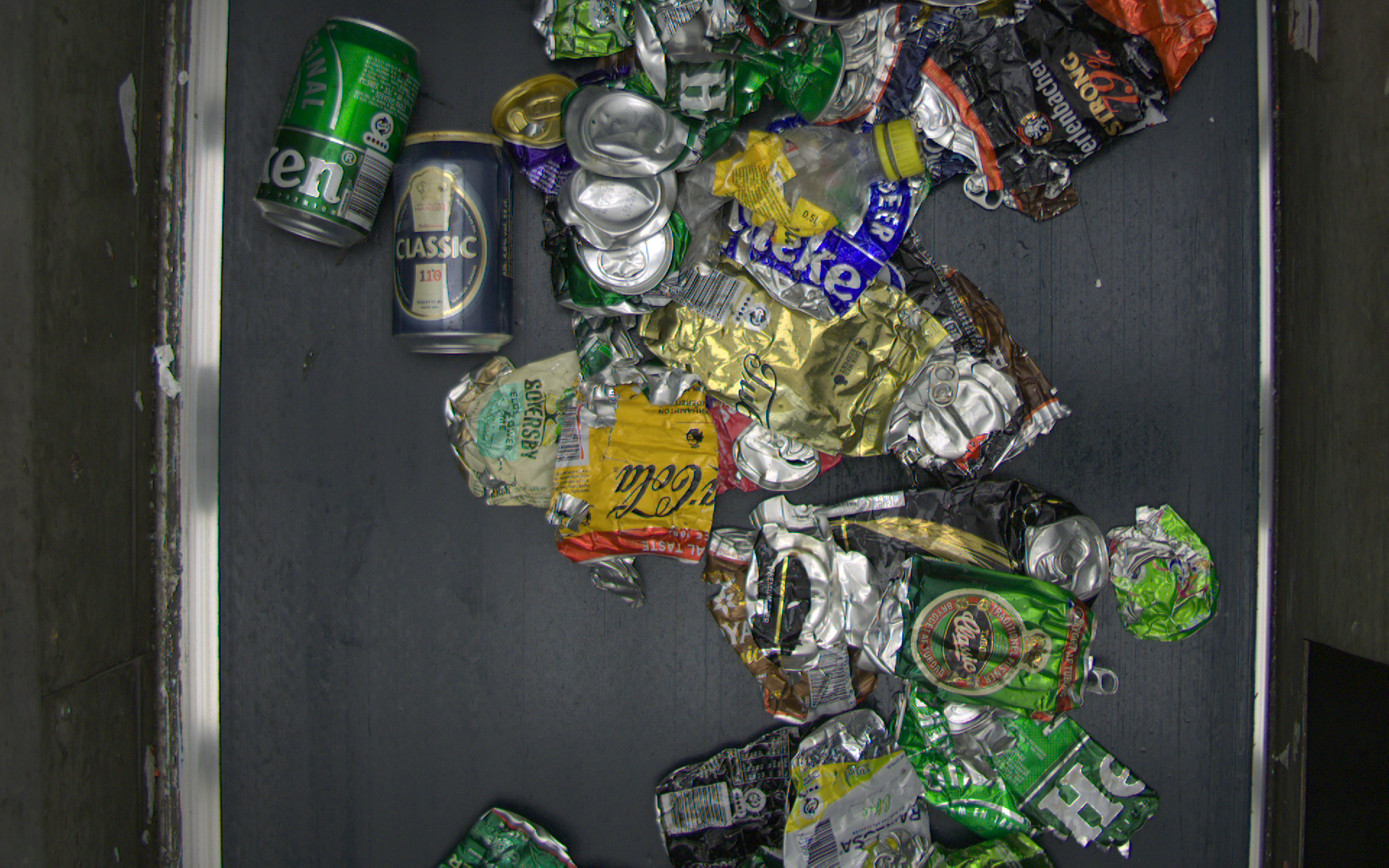How intelligent camera technology can improve waste separation
It is important to have detailed information on waste streams from households and industry if the green transition is to succeed. Recycling plastics and metal depends entirely on meticulous separation, and artificial intelligence and new camera technology can help.

If we want to recycle more materials than we do at present, we will need to become better at separating waste fractions.
Today, waste streams are initially separated mechanically and manually, and this method is far from 100 per cent accurate. This means there are impurities in the waste fractions, and manual quality assurance is necessary if the materials are to be recycled.
Advanced camera technology and artificial intelligence can help with this. Recycling industrial and household waste using fully automated separating systems based on intelligent sensor technologies is crucial for a future circular ecosystem.
ROBOSORT is a Danish-led collaborative project on automating waste streams. The project is a collaboration between Aarhus University, the Danish Technological Institute and a team of Danish companies; Dansk Affaldsminimering, Makeen Energy and Dansk Retursystem.
"The project is examining and testing some of the latest technologies that can help ensure the development of intelligent and robot-based separation installations. The Danish Technological Institute and Dansk Retursystem are working together to monitor the proportion of plastic bottles included accidentally when separating aluminium. We have developed a model based on artificial intelligence that can identify plastic bottles among aluminium packaging using a standard digital camera,” says Thomas Høiberg Giselsson, consultant at the Danish Technological Institute.
The camera has already been installed for a pilot experiment at Dansk Retursystem, and the system seems promising in relation to identifying plastic in the aluminium fraction.
"The objective is to increase data on the waste stream. Right now, we want an overall picture of how much plastic mistakenly ends up in the aluminium fraction due to the mechanical separation we use today. We can then adapt the mechanical separation and the flow in relation to the manual separation that takes place today. In the future, manual separation will likely disappear completely as a result of the intelligent camera systems we are developing today," continues Thomas Høiberg Giselsson.
At Aarhus University, Associate Professor Mogens Hinge is working with Dansk Affaldsminimering and Makeen Energy on using so-called hyperspectral images to distinguish between aluminium and plastic on the conveyor belt.
"We’ve developed an experimental laboratory layout, that can differentiate between aluminium and plastic using a hyperspectral camera,” says Associate Professor Mogens Hinge.
The hyperspectral camera can register far more wavelengths than the human eye, and can therefore read the unique spectral signatures of plastic.
The ROBOSORT project is proof of concept of methods to monitor and quantify the level of pollution in waste streams. The project includes data collection, development of vision systems and the processing of image data.
All in all, the project is leading the way towards autonomous waste separation systems. This requires intelligent systems like the ones developed in this project and, in the long term, high-tech and detailed robot-controlled separation:
"I can see broad perspectives for these technologies. By combining several camera technologies, we can purify waste streams and make it possible to recycle far more materials than we do today," says Mogens Hinge.
Robosort is one of the many collaborative projects that were carried out in the innovation network Robocluster in 2020. You can read more about the network’s projects here.
The collaborative projects are supported by the Ministry of Education and Research.
Contact
Associate Professor Mogens Hinge
Department of Biological and Chemical Engineering, Aarhus University
Mail: hinge@bce.au.dk
Tel.: +45 22770555
